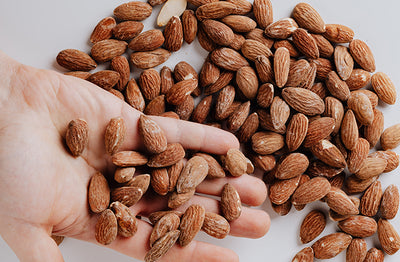There are several types of
protein supplements available, and the list can be confusing if you are not sure what product will work best for you. There is really no one type that is superior to the others in every way, it is really all about finding the best supplement for your needs and goals. To do that, you’ll need personal advice that depends on your sex, age, build and goals. To get you started though, here are some of the different types of protein supplement available.
Whey
The most common protein supplements are made from Whey. Whey is a by-product from making cheese. Remember little Miss Muffet, sitting on her tuffet eating her curds and whey? Well, curds and whey are made from skim milk. Once you add a chemical to it called “Rennin” (which is an enzyme naturally found in a calf’s stomach) some of the proteins start clumping together. Those that do are called “curds”, and they go on to be turned into various types of cheese. What remains is the “whey”.
The whey then undergoes a treatment to turn it into a powder, usually just by boiling it until the water leaves the mixture as vapour and what is left can harden as it cools, before being ground down.
The big advantage of whey is that it contains loads of branched chain amino acids (BCAAs) that can help preserve muscle tissue between workouts. It’s also really easy to digest, meaning that you won’t feel “heavy” after taking it.
If you see a particular product described as “whey concentrate” or “whey isolate” they have a couple of small differences.
Concentrate is filtered to remove most of the carbohydrates, fat and lactose from the raw whey. The end result is about 80% high quality protein (by mass), whereas isolate is even further refined to remove more fat and lactose, resulting in a

protein percentage of about 90%.
Generally, isolates are better for people wanting to remove as much fat from their diet as possible. Remember though, that you still need some essential fats and oils in a balanced diet, meaning that it may not automatically be the best for your health goals.
The consistency is usually a little thinner than concentrate, due to the absence of this fat too.
The quality of protein is the same in both types of whey, the only real difference is the concentration of protein versus fat, carbs and lactose.
Casein Protein
Casein is another dairy protein source, coming from milk. It is a major component of cheese and a great source for amino acids and calcium.
The percentage of protein in casein is similar to that of whey, but it will sit in your stomach much longer, meaning it works great as a slowly digested supplement, but not so well as a source of protein while working out, or even for an hour or two after. It’s best taken as a dietary supplement, or just before sleep.
Casein does contain lactose, so people with allergies (and anyone who shares space with them) should be aware of this. Allergies usually just result in bloating and gas, but are certainly worth considering if you cohabitate with other people.
Soy Protein
Soy protein is made from soybean meal that is processed to remove the husk and much of the fat content.
Soy protein supplements generally have a similar level of protein to whey, and even come in concentrate and isolate forms. The major difference is that soy protein will often have a higher carbohydrate percentage, which can be bad for people wanting a carbohydrate controlled diet, but the lack of lactose means it is suitable for people who have trouble processing dairy.
Soy protein powder is also a great additive to baking if you’re trying to increase your every day protein levels.
Egg Protein
Generally made from egg whites (or albumin if you want to use the more scientific term)
egg protein is high in amino acids and also
lactose free. Remember the training scene in “Rocky” where he drinks five raw eggs? That’s as basic a protein shake as you can get.
Also not one that most people would enjoy, which is why the supplement is refined and much better tasting. It is processed to have no cholesterol, is naturally lactose free and very low levels of fat.
Conclusion
There are a few more types of protein supplement, such as beef or plant based protein supplements, and many types of protein are available as
protein bars and protein drinks. but these are still rare and relatively untested. The key is to find one that you like and will benefit you in your situation. As always, if you’re confused about what might be best for you, seek nutritional advice or ask us! You can contact us via the details on the “contact us” page.
Read More:
 protein percentage of about 90%.
Generally, isolates are better for people wanting to remove as much fat from their diet as possible. Remember though, that you still need some essential fats and oils in a balanced diet, meaning that it may not automatically be the best for your health goals.
The consistency is usually a little thinner than concentrate, due to the absence of this fat too.
The quality of protein is the same in both types of whey, the only real difference is the concentration of protein versus fat, carbs and lactose.
protein percentage of about 90%.
Generally, isolates are better for people wanting to remove as much fat from their diet as possible. Remember though, that you still need some essential fats and oils in a balanced diet, meaning that it may not automatically be the best for your health goals.
The consistency is usually a little thinner than concentrate, due to the absence of this fat too.
The quality of protein is the same in both types of whey, the only real difference is the concentration of protein versus fat, carbs and lactose.















